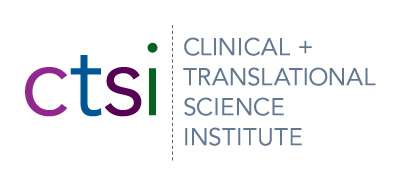Current ICRE Spotlight
|
Now a PhD in behavioral decision research and a current Scholar in the ICRE's Clinical and Translational Science (CTS) Scholars Program (KL2), Dr. Krishnamurti finds herself able to follow a highly interdisciplinary approach as she conducts her investigations. She has found the KL2 to be incredibly supportive in this endeavor, helping her to strengthen her research network of health professionals. Her path into the KL2 is perhaps not a traditional one: Before coming to Pitt she was in an engineering department at Carnegie Mellon University, where her work on risk perception and communication was applied to energy conservation as well as critical health care problems, such as effective informed consent and medical decision making. Dr. Krishnamurti’s original graduate school plans included a degree in public health. However, while interning with an international health organization in London, she worked on a project based in India that was distributing condoms to truck drivers to try to decrease the transmission of HIV. As she analyzed why the project wasn’t meeting its goals, she realized that the recipients’ decision-making processes and social network dynamics were not being considered. This opened her eyes to a new interdisciplinary field: decision science. She continued to read about decision science after returning to CMU to work as a research associate in Dr. Sheldon Cohen's health psychology lab, and soon learned that just down the hall was the office of Dr. Baruch Fischhoff, one of the founders of the field of decision science and a protégé of Daniel Kaheman and Amos Tversky. After an afternoon chat with him in which he inspired her "decision" to switch her intended path, she was on her way to getting an MS and a PhD in social psychology and behavioral decision research. Her work, as she describes it, attempts to help individuals and institutions make hard decisions, drawing on methods from social and decision sciences to try to bridge the gap between the world in which people actually operate and the ideal world in which experts theorize. In her most recent research focused on maternal health, she developed a mobile health tool for pregnant women (MyHealthyPregnancy) that combines machine learning with behavioral insights and best practices in user experience/user interface (UX/UI) to identify and communicate actionable pregnancy risks to women and their healthcare providers. The project, unsurprisingly, brought together different fields and specialists, creating just the kind of interdisciplinary approach that Dr. Krishnamurti believes is essential to helping tackle the most challenging societal problems. Initial results have been encouraging: In early piloting of the first prototype of the app, it was able to pick up incidences of drug use, intimate partner violence, and depression that had not been identified during routine prenatal care. More critically, it was engaging to those patients who often miss routine prenatal care and are therefore at even higher risk of adverse outcomes. This kind of risk identification is what Dr. Krishnamurti finds most encouraging about her work—in addition to being able to observe subsequent behavior change. She has since received funding from various local foundations and the Pittsburgh Health Data Alliance to expand on this early work. In the future, she hopes to continue to forge interdisciplinary collaborations and maintain strong ties with her CMU network, and to add to this new body of work on pregnancy risk and maternal health behaviors. |
The Institute for Clinical Research Education serves as the Research Education and
Career Development
Core of the Clinical and Translational Science Institute (CTSI).

This Web site is maintained by the Center for Research on Health Care (CRHC) Data Center.
Contact the webmaster at dcweb@pitt.edu.
 As an undergraduate, Tamar Krishnamurti was fascinated by human behavior, both from the pure sciences perspective and from a psychological and cultural standpoint. But there was no course of study at the time that allowed her to learn about the two simultaneously. In order to pursue her passion for human behavior from the societal to the cellular level, she petitioned the university to create her own major in Biological Anthropology.
As an undergraduate, Tamar Krishnamurti was fascinated by human behavior, both from the pure sciences perspective and from a psychological and cultural standpoint. But there was no course of study at the time that allowed her to learn about the two simultaneously. In order to pursue her passion for human behavior from the societal to the cellular level, she petitioned the university to create her own major in Biological Anthropology.